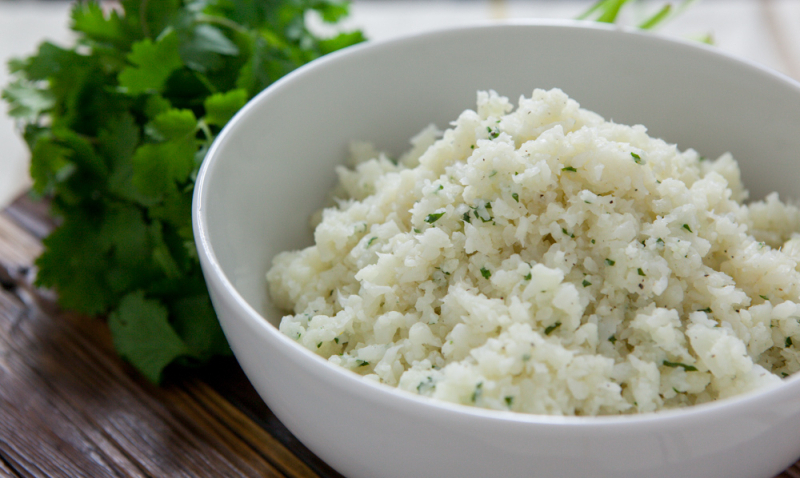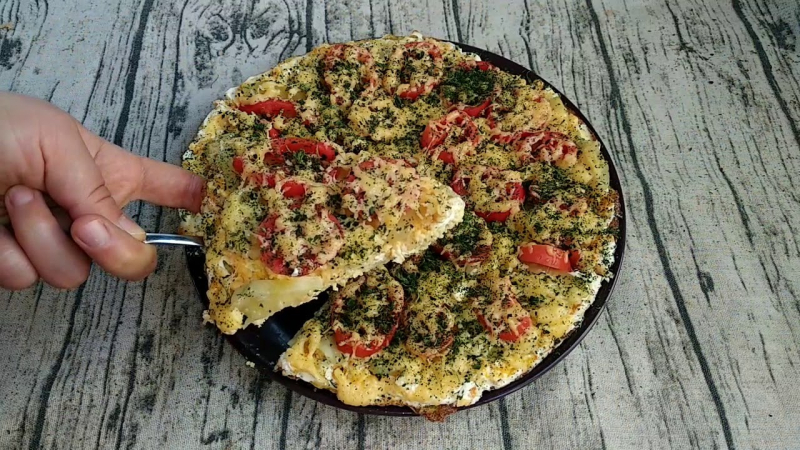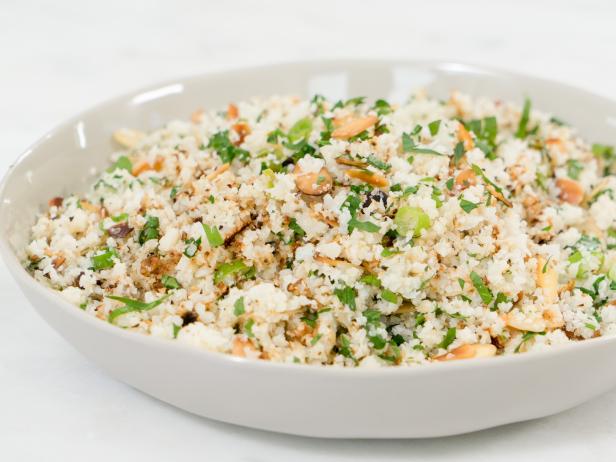
Cauliflower – as a universal substitute for less healthy foods
0
Whoever said you should forget about white food and stock up on colorful foods definitely forgot to mention such a valuable and healthy product as cauliflower. So how healthy is it?
If cauliflower can even be made into dumplings, then it can be made into anything! This cruciferous vegetable is considered a universal substitute for other less healthy foods that are high in carbohydrates. Its mild taste and excellent nutritional properties have made cauliflower a real superfood, and major food companies and restaurants around the world have taken notice. Dumplings, pizza, hash browns, rice and wings are among the many mood-boosting foods that cauliflower makes lighter by reducing the proportion of carbohydrates. And here's why you should add it to your healthy diet.
Nutritional value of cauliflower
Serving size: 1/6 of a medium head (100 g)
- Calories: 25 kcal
- Fat: 0 g
- Sodium: 30 mg
- Carbohydrates: 5 g
- Dietary fiber: 2 g
- Sugar: 2 g
- Vitamin C: 100% DV
- Potassium: 8% DV
- Calcium: 2% DV
- Iron: 2% DV
Health Benefits of Cauliflower
Despite its simple white color, cauliflower is rich in vitamins and contains various phytochemicals and antioxidants. This nutritious source offers a variety of health benefits, including:
- Reduces the risk of inflammation.The antioxidants in cauliflower help protect cells from damage and oxidative stress, which can lead to chronic diseases. One study also found an inverse relationship between consumption of cruciferous vegetables, such as cauliflower, and the risk of developing a number of chronic diseases.
- Reduced risk of cancer.While no single food has been linked to preventing or growing tumors, cauliflower contains a compound called sulforaphane, which helps block abnormal cell growth. However, eating plenty of cruciferous vegetables in general may reduce your risk of all types of chronic disease. Broccoli, collard greens, bok choy, cauliflower, Brussels sprouts, and kale are all great options to fill your plate with.
- Helps regulate blood pressure. Sulforaphane, a compound found in cauliflower, has also been linked to lowering blood pressure in one study. In addition, studies have shown that cruciferous vegetables play a big role in preventing heart disease.
- Protect your bones. Cauliflower is rich in vitamin K, which is essential for both bone mineral density and blood clotting.
- Boost your immunity. Just one serving of cauliflower contains 100% of the daily value of vitamin C, which can help support your immune system and also plays a special role in DNA repair in the body. Vitamin C protects you from infection and even stimulates the production of antibodies to fight disease.
Can Cauliflower Help You Lose Weight?
Considering cauliflower's low calorie content, it's a great choice for those trying to lose weight. You can significantly reduce your calorie and carb intake by choosing cauliflower, while adding extra fiber to help you stay full. Plus, cauliflower is over 90% water, which keeps you hydrated.
Is cauliflower high in carbs?
Cauliflower is a carbohydrate, like all vegetables. However, it is a non-starchy complex variety that is high in fiber and low in natural sugar. One cup contains about one-sixth of the carbohydrates as the same amount of cooked pasta or rice, so it can be a great option for diabetics or those watching their blood sugar levels.
How to cook cauliflower?
Most ways to cook cauliflower will preserve all of its nutrients. The only exception is boiling, which slightly reduces its content. But in this case, the taste may be a bit bland, so you're better off just roasting the cauliflower. You can also try these interesting alternatives to include cauliflower in your weekday diet:
Pizza

Use cauliflower as a flour substitute for baking. It will provide more fiber and less sodium per piece.
Alternative to mashed potatoes
Boil the cauliflower and blend it with Greek yogurt or low-fat cream cheese. Add a little garlic and onion powder, as well as salt and pepper. This low-carb option is perfect for dinner, as a side dish, and won't make you feel guilty.
Cauliflower rice

Replace traditional white rice with cauliflower rice in any recipe that calls for rice. This way you'll get more fiber, fewer carbs, and fewer calories. If you don't want to give up white rice completely, try a mix of white rice and cabbage.









Leave a Reply